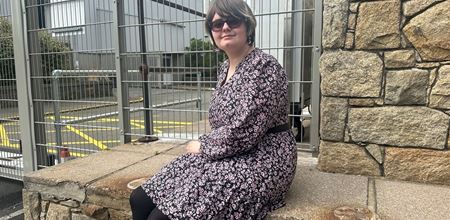Why does Guernsey Electricity need a Company Secretary?
Since 2001, Guernsey Electricity Limited has been an incorporated company (colloquially known as GEL). Our sole shareholder is the States of Guernsey who allocate responsibility for this function to the States Trading Supervisory Board (STSB) on their behalf.
The STSB also takes responsibility for the other incorporated entities (Trading Assets) of the States of Guernsey, namely Guernsey Post, Aurigny and JamesCo (tankers). This means we have our own independent board of directors. Three Executive Directors involved in the day to day management of the company and six Non-Executive Directors from various backgrounds, not involved in the day to day management but responsible as part of the Board for major strategic decisions. One of the Non-Executive Directors acts as Chair of the Board.
By contrast, Guernsey Water, Guernsey Ports, Guernsey Dairy and Guernsey Waste are ‘unincorporated businesses’ of the States of Guernsey. Previously this is how Guernsey Electricity traded when we were known as the 'States Electricity Board’.
This means we need a Company Secretary to ensure that, as an incorporated company, we report to the Guernsey Registry, comply with applicable laws, operate smoothly, and maintain transparency and accountability with the STSB as our shareholder.
What on earth does a Company Secretary at Guernsey Electricity do?
You may have heard of the role ‘Company Secretary’ most commonly in the financial sector, but it also has a critical part to play in the sustainable energy transition.
Overall, a Company Secretary is pivotal in upholding corporate integrity, facilitating effective decision-making, and ensuring legal compliance, which Is an important job as you could imagine. But what exactly does a Company Secretary (CS) at Guernsey Electricity do?
Here, we interviewed Sarah who explains more about what the role achieves.

How does the Company Secretary help keep our island running?
Although our CS doesn’t physically run the power station, they do help ensure GEL (“Guernsey Electricity Limited”) operates legally and is well governed. They’ll work with our Board of Directors as part of the link to the rest of the company and will carry out activities such as submitting annual returns and ensuring there are efficient Board processes and procedures.
In a nutshell, what does a CS at GEL do?
As with any limited company, GEL has certain rules and procedures it must follow to operate. Our CS is responsible for ensuring we operate, and decisions are made and documented within, these 'incorporated company’ parameters. The CS also acts as a trusted advisor to the Board as a whole, which includes GEL’s Executive Directors, our Non-Executive Chair, and our Non-Executive Directors.
Depending on the individual skills of the CS there is the opportunity to develop the role beyond core duties to support the Executive team.
What are the main responsibilities of a CS?
There are several responsibilities that come into play as a CS as the role is so varied and diverse - you often need to wear many hats!
Mainly, our CS is responsible for Board and Sub-Committee administration – for example agreeing agendas, preparing, and collating papers, following up actions and minuting meetings.
They’ll also provide advice on several items, including:
-
- Company Law and other relevant regulation
- GEL’s own Articles of Association and procedures
- Requirements set by our shareholder (the STSB)
- Good governance practices
- Maintaining our company registers of Shareholders, Directors and Company Secretary as required.
- Updating Guernsey Registry records including our Annual Returns.
What is one thing that people may not know about the CS role?
Although the CS reports to the CEO, the CS is actually appointed by, and accountable to, the Board as a whole.
What qualifications or experience do you need to become a CS?
There are specific corporate governance qualifications that you can get to qualify as a corporate governance professional. Having prior experience in either accounting or legal is particularly useful, and of course having a good understanding of GEL and its activities where possible.
The CS role can also be complementary to a wider role within the company.
At GEL, does the CS work alone or as part of a team?
Currently, at GEL, the CS is a work-alone position whereas in other organisations there may be a larger team. But there is still a sense of collaboration here as you can work closely with the PA to the CEO, the Executive Directors, and of course the Board.
What advice would you give someone interested in becoming a CS?
The Chartered Governance Institute is a good place to start as you’ll find details on the various routes to qualification and useful information.
There is also a local branch where you can meet existing CS’s and hear first-hand what is involved.
If you’re not sure, then work experience is always a good avenue to explore. You can gain unique insights into various companies and the opportunities available, helping you decide what is and isn’t for you.
When is the busiest time of year for a CS at GEL?
This is usually around the four quarterly Board and sub-committee meetings, together with the Annual General Meeting (AGM) with the shareholder. At these times, there will be a flurry of activity to prepare for, conduct, and then feedback the outcomes of the meetings to the various stakeholders!
What are some challenges that CS’s may face?
Sometimes you may get a discussion where you need to balance the views of all parties to ensure accurate recording of what was actually discussed, which might not be what was remembered by all.
Organising a meeting amongst busy Board members can often be a challenge too.
Interested in joining our team?
Visit our Careers page











